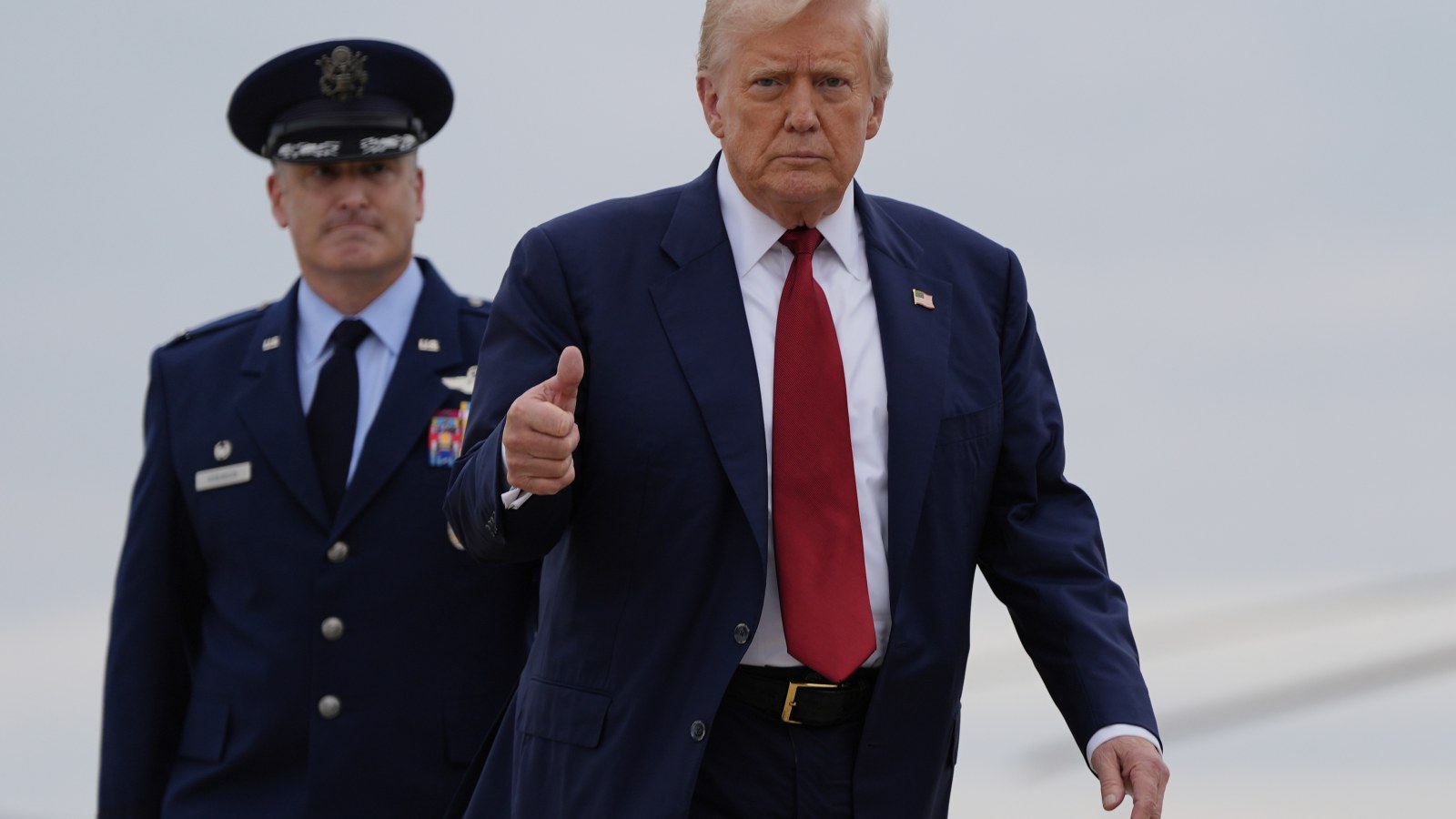White House Under Fire as Trump Justifies Firing BLS Chief Over Jobs Data Revisions
White House Under Fire as Trump Justifies Firing BLS Chief Over Jobs Data Revisions
By
Leah Rosenfeld
Last updated:
August 4, 2025
First Published:
August 4, 2025

President Donald Trump fired Erika McEntarfer after BLS' monthly jobs report for July showed that the economy had added just 73,000 jobs, coming in under expectations. | Julia Demaree Nikhinson/AP
Tensions Rise Over Jobs Data and Leadership Shake-Up
The White House is facing growing criticism after President Donald Trump abruptly fired Bureau of Labor Statistics (BLS) Commissioner Erika McEntarfer following significant downward revisions to U.S. employment data. The dismissal has sparked concern across political and economic circles, with many warning that the move threatens the credibility of one of the government's most vital statistical institutions.
According to the latest jobs report, nonfarm payrolls increased by only 73,000 in July, missing expectations of 100,000, even though it was a slight improvement from June’s dismal 14,000. However, what rattled markets and policymakers alike were the substantial revisions to previous months: May and June job gains were collectively revised down by 258,000, painting a much bleaker picture of the labor market than previously understood.
Hassett Defends the Decision
Kevin Hassett, Director of the National Economic Council, appeared on NBC's Meet the Press to defend the firing, calling the data revisions “hard evidence” that justified the president’s decision.
“These revisions are not routine,” Hassett claimed, despite the fact that jobs data is frequently updated as more employer payroll information becomes available. “There have been patterns that could make people wonder,” he added, although no formal evidence of wrongdoing by McEntarfer was presented.
Hassett insisted that the administration is not “shooting the messenger,” but rather, “wants its own people” leading the agency to ensure that labor data is “more transparent and reliable.”
Critics Warn of Politicization
The move has raised alarm across the economic community, including among Trump-appointed former BLS Commissioner William Beach, who called the firing “groundless” and warned that it “undermines the statistical mission of the Bureau.” On CNN, Beach added that even a top-tier replacement would suffer from credibility issues.
“If the next person delivers weak data, people will question whether the numbers are manipulated or politically influenced,” he said.
Senate Minority Leader Chuck Schumer was even more direct. Speaking on the Senate floor, he accused Trump of behaving like a “dictator” and trying to distract from the chaos of his economic policies, including an unpredictable tariff regime.
Senator Ron Wyden, top Democrat on the Senate Finance Committee, echoed these concerns. “Bottom line, Trump wants to cook the books,” he said in a statement, calling the dismissal an act of “someone too weak to face the economic damage they’ve created.”
Data Quality Under the Microscope
While many condemned McEntarfer’s removal, some pointed to deeper issues with how jobs data is collected. The BLS relies on surveys from around 122,000 businesses and government agencies—a method that some argue may no longer be fit for a modern, fast-moving economy.
Bank of America CEO Brian Moynihan said on CBS News that the U.S. should rethink how it collects employment data. “The surveys we use to build this information just aren’t as effective anymore,” he noted. “We can get this data in better, more accurate ways.”
Senator Rand Paul, a Republican, also emphasized the risk of undermining objectivity: “When the people providing the statistics are fired, it makes it much harder to trust that the data won’t be politicized.”
What Happens Next?
With another major jobs report expected in September, the pressure is mounting on the administration to either deliver strong, credible numbers—or risk further backlash. If the upcoming data again includes large revisions or underwhelming figures, questions over political influence may intensify.
Meanwhile, economic confidence is on edge. Consumer sentiment dipped in the first week of August, and analysts warn that continued instability in labor data reporting could shake investor confidence, impact policymaking at the Federal Reserve, and complicate fiscal planning as the election cycle heats up.
Ultimately, the fallout from McEntarfer’s firing may extend far beyond her tenure. It raises the core question: Can the public still trust the government’s data when it becomes a political flashpoint?
Popular articles
Subscribe to unlock premium content
Global Cultures and the Hidden Drivers of Productivity and Happiness

The Future of Personalized Medicine

Digital Nomads and the New Global Economy

Global Cultures and the Hidden Drivers of Productivity and Happiness

The Future of Personalized Medicine

Global Cultures and the Hidden Drivers of Productivity and Happiness









